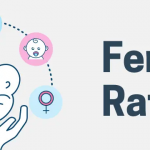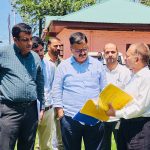As major contributors to poor health outcomes, overweight and obesity plague the modern world. Obesity is associated with an increased risk for common illnesses, including type2 diabetes, hypertension, degenerative joint disease, sleep apnea, cancer, including other diseases. Persons with obesity also suffer from stigma, in large part because obesity has erroneously been viewed as being brought on primarily by a person’s own unhealthy behaviour.
Fortunately, advances in our understanding of the pathophysiology of obesity are helping to counter some of that stigma and are also ushering in novel pharmacologic, surgical, and behaviouralinterventions.
Recently, I attended a CME on current clinical challenges in weight and obesity management organized by American College of Physicians (USA), of which I happen to be an honorary member. I acknowledge the panel discussion of expert physicians and jotdown some important minutes from the educational activity.
Firstly, obesity is a complex condition resulting primarily from an interaction of genes and the environment. It is heritable, so persons who have family members with overweight or obesity are at greater risk for it themselves and preventive interventions are important.
Obesity is a chronic condition, and clinicians and patients must manage it as they do other chronic conditions. For example, we do not discontinue hypertension management when a patient reaches a target blood pressure; similarly, we should not discontinue obesity management when a patient achieves a target weight. As with many chronic diseases, obesity can progress, and additional or different treatment strategies may be needed over time.
Second, effective obesity care demands a multidisciplinary approach. Care should be tailored to individual patients and may require involvement of primary care physicians, medical subspecialists, surgeons, dietitians, and behavioural and psychiatric health professionals.
The intensity of initial treatment should be guided by the severity of obesity and the presence of comorbidities. Given the prevalence of obesity, all disciplines should devote more attention to preventing and managing it in clinical education and training than is currently the case.
Third, patients with overweight and obesity suffer from stigma. Physicians and other clinicians must approach discussions of healthy body size with patients without judgment and must avoid blaming and shaming patients. It is also important not to reflexively attribute a patient’s presenting symptoms to their weight without thoughtful consideration of other causes.
Because of stigma, patients may avoid seeking care altogether, putting them at risk for suboptimal management of not only obesity but also associated comorbidities. When discussing obesity with patients, we need to recognize its complex pathophysiology rather than using language that implies that obesity is a condition that patients bring on themselves.
Fourth, we need better measures of overweight and obesity. Body mass index (BMI) is currently used to signal suboptimal body size and eligibility and health care coverage for various treatments. Unfortunately, BMI is an imperfect measure of body composition that differs with ethnicity, sex, body frame, and muscle mass.
Fifth, modification of diet and exercise alone is unlikely to result in long-term benefit. Fewer than 50% of patients who participate in evidence-based, intensive, multicomponent lifestyle interventions lose 5% or more of body weight and clinicians must recognize that the most effective diet is one that a patient can sustain while limiting calories.
As effective pharmacologic and surgical therapies advance, lifestyle modification should be viewed as one component among multiple interventions and as essential in preventing overweight and obesity.
Finally, choosing the best treatment strategy should involve shared decision making between patients and their clinicians. Patients should receive information about the anticipated benefits and harms of all options—pharmacologic, surgical, and behavioural—for which they are eligible.
Pharmacologic therapies are rapidly expanding and currently include bupropion–naltrexone, orlistat, phentermine–topiramate, liraglutide, and semaglutide.
Surgical options include sleeve gastrectomy, gastric bypass, and an increasing array of less invasive endoscopic procedures.
Conclusion
As we are entering an age of increasingly effective therapeutic options for treating overweight and obesity — better understanding of the pathophysiology of this complex condition will not only enable the development of new preventive and therapeutic strategies but will also help alleviate weight stigma and bias.
(The Author is Diabetes Expert/Physician. Feedback: [email protected])








